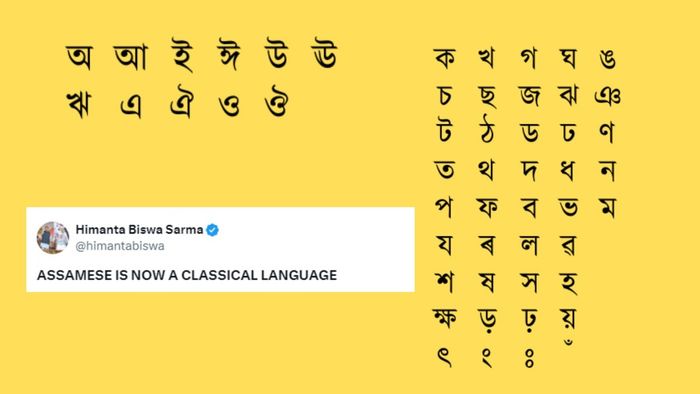Assamese granted classical language status, four others join elite list
The Central government has officially recognised Assamese as a classical language, marking a landmark moment for India's linguistic diversity. This decision is expected to boost academic research and cultural preservation efforts.

- Oct 03, 2024,
- Updated Oct 03, 2024, 10:42 PM IST
The Central government has officially recognised Assamese as a classical language, along with four others, in a landmark decision on October 3 highlighting the nation's linguistic diversity.
Prime Minister Narendra Modi's cabinet approved the addition of Assamese, Bengali, Marathi, Pali, and Prakrit to the prestigious category of classical languages.
PM Modi expressed his immense delight on Twitter regarding the decision. He highlighted that Assamese culture has thrived for centuries and contributed to a rich literary tradition. He also hoped that the language would gain even more popularity in the future, extending his congratulations to all involved.
Assam Chief Minister Himanta Biswa Sarma also expressed his elation, calling it "one of the happiest days in my life." He tweeted, "This exemplifies the unique civilisational roots of Assam that has withstood the test of time."
Sarma emphasised the importance of this recognition, stating, "We shall be able to better preserve our beloved mother tongue, that not only unites our society but also forms an unbroken link to the ancient wisdom of Assam's saints, thinkers, writers and philosophers."
Union Minister Ashwini Vaishnaw announced the decision, highlighting Modi's focus on Indian languages. The newly classified languages join six others already recognised as classical: Tamil, Sanskrit, Telugu, Kannada, Malayalam, and Odia.
This classification is more than symbolic. It opens up new avenues for academic research, cultural preservation, and linguistic study. The move is expected to boost efforts to maintain and promote these languages, ensuring their continued relevance in modern India.
Sarma thanked Modi for his "relentless efforts to secure Bharat's Heritage", reflecting the sentiment that this decision goes beyond mere language classification.